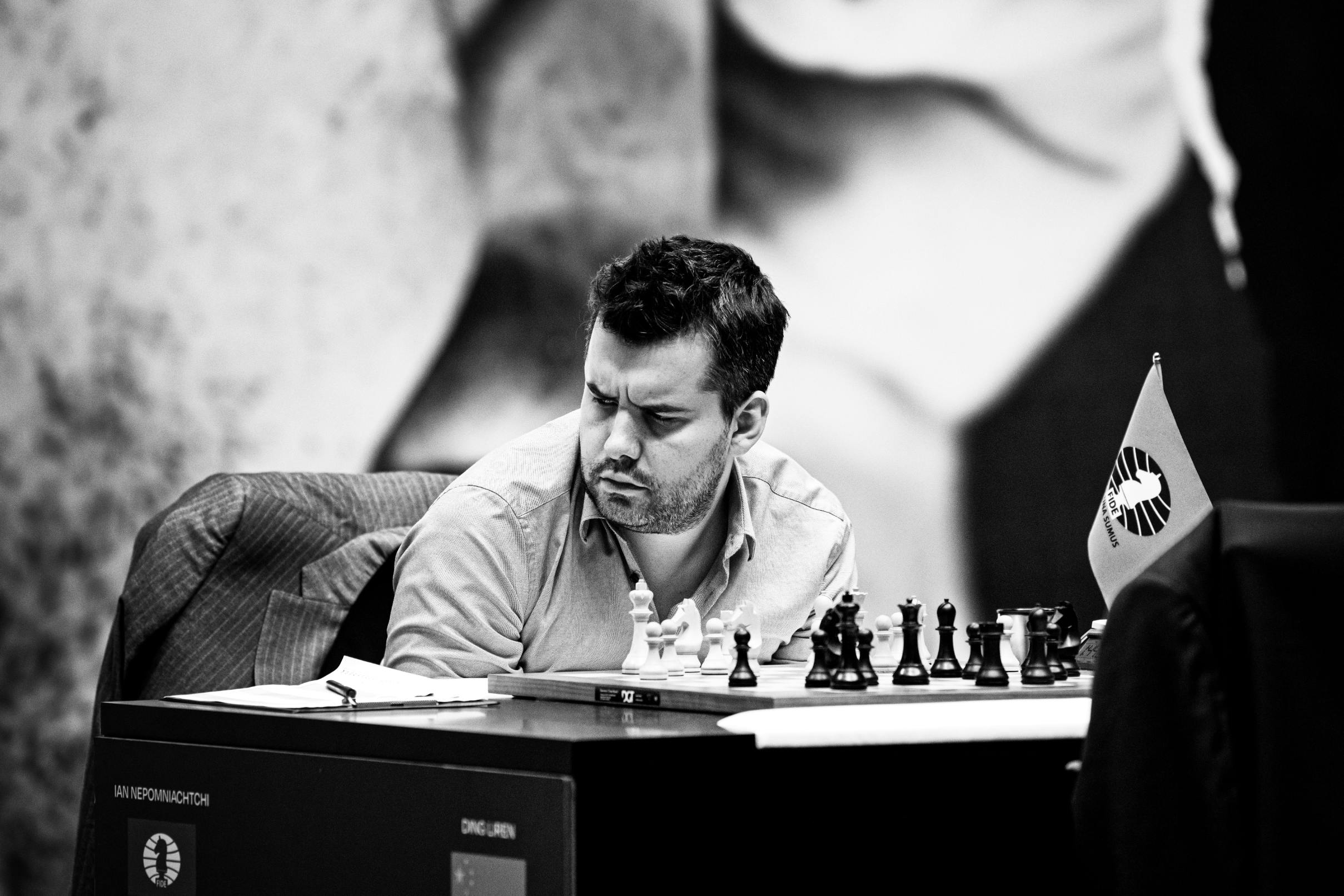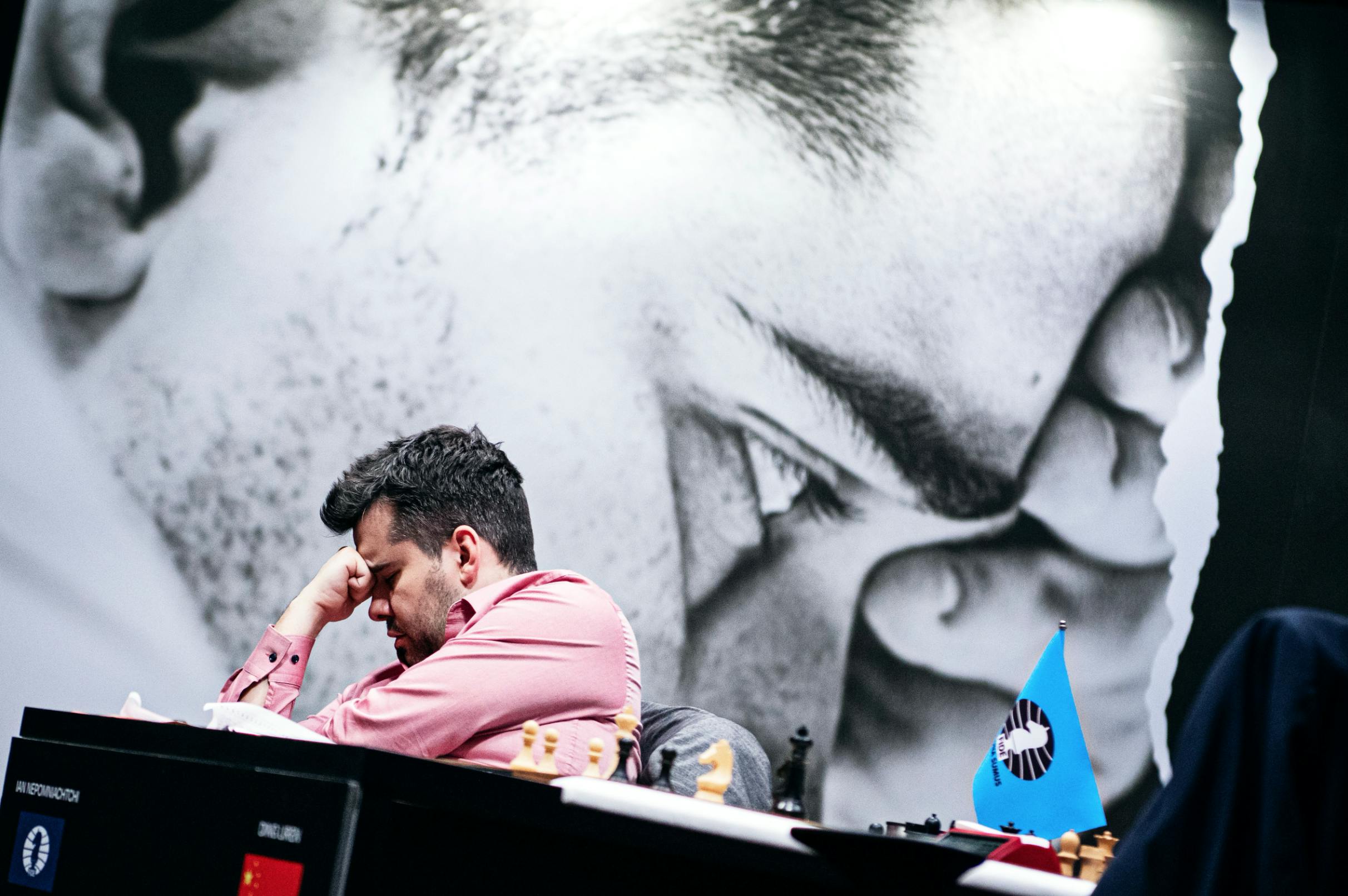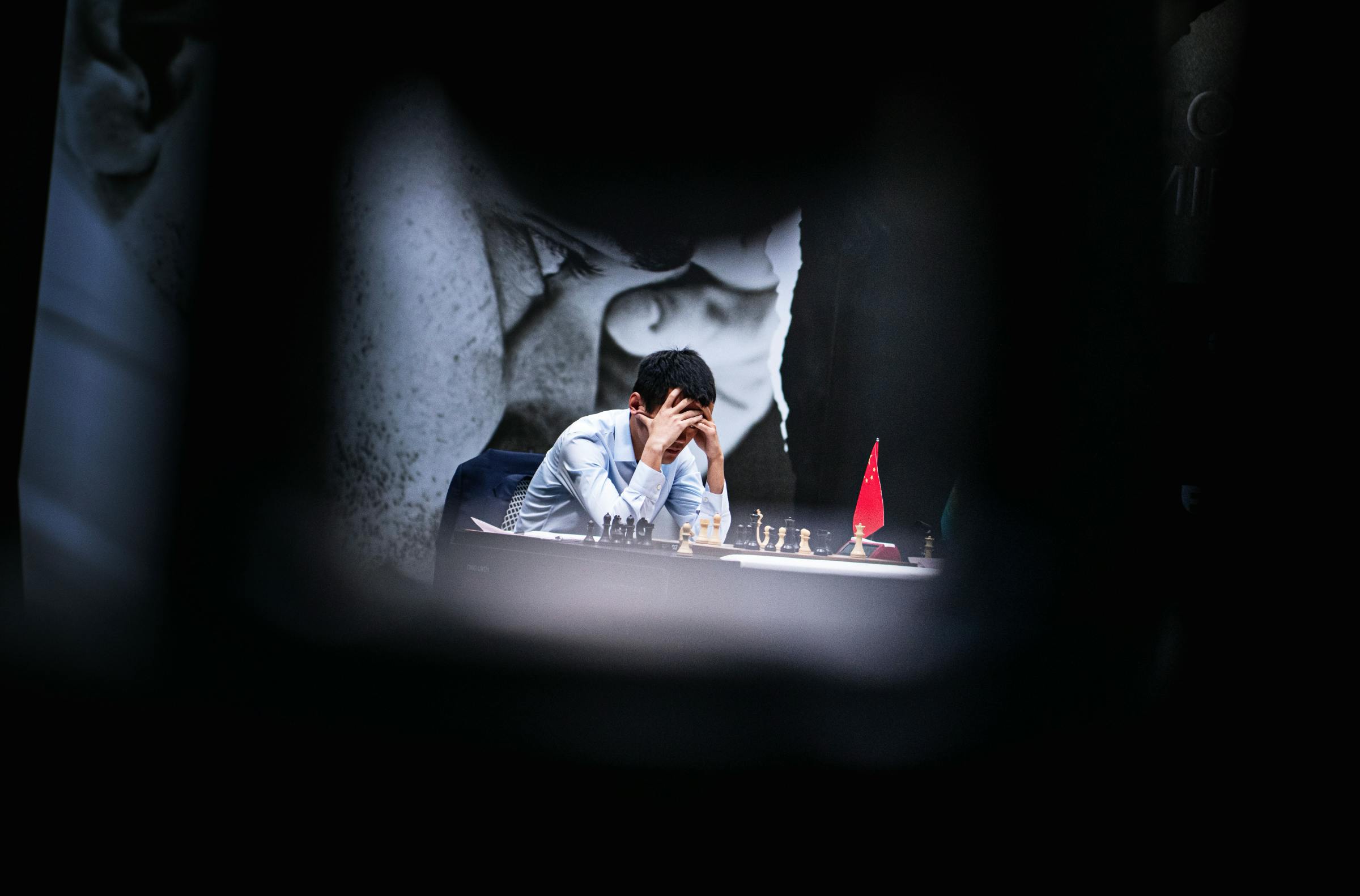World Chess Championship: Games 7, 8 and 9 - Ding’s Prep Discovered?
A recap of Games 7, 8 and 9 of the World Championship between Nepomniachtchi and Ding, and with annotations by GM Harikrishna Pentala

Games 7, 8, and 9 of the 14-game match between Ian Nepomniachtchi and Ding Liren have just been played in Astana, the capital of Kazakhstan. The winner will be crowned as the new World Champion in classical chess, following Magnus Carlsen’s abdication of the title. Given the change of tournament schedule at Game 7, this recap is slightly longer than the others.
The schedule of games can be found here, with Lichess providing a live broadcast transmission of all games. Read below for detailed thoughts and annotations on the games from GM Harikrishna Pentala – one of the strongest players in the world (FIDE Rating: 2704, World Rank: 34) and a former world top 10 player with a peak rating of 2770, along with more general impressions on the tournament so far.
Game 7
The annotations by GM Harikrishna Pentala are provided in the embed below, with a direct link to the full study available here.
https://lichess.org/study/SkQqKSso/1S2qOMQ0
Going into Game 7, Ding had just come off a victory in Game 6 and equalized the score back to 3 - 3. The players began Game 7 with a line of the French Defence – our annotator’s own favored opening for black before he became a super-GM.
Ding’s opening, however, appeared to be positionally shaky with a daunting attack being mounted by Nepomniachtchi. The aggressive momentum was with Nepomniachtchi, whereas Ding had to play extremely precisely to avoid losing pieces, or getting mated.
Ding managed to do so – but at the cost of most of his time. Yet, the momentum began to shift and the position became entirely equal if not even slightly in favor of Ding.
Disaster struck for Ding at move 33. Explaining in the post-game interview that he simply believed he was losing and his position was lost, he spent around 80% of his remaining time – from 11 minutes down to well under 2 minutes – considering what to play. The truth is, he could return his rook to its position from a move earlier, and still have equality and try a different idea.

(Photo - FIDE / Stev Bonhage)
Playing a catastrophic blunder, Nepomniachtchi won a pawn, obtained a much stronger position, with multiple threats coming Ding’s way, leading to Ding’s resignation.
Much like in previous games, the real battle in Game 7 was between Ding and Ding’s own psychology. On the board, he again outplayed Nepomniachtchi – but he froze up and seemingly got hit by pressures of the Match.
With this important victory for Nepomniachtchi, he took the lead with 4 - 3.
Game 8
The annotations by GM Harikrishna Pentala are provided in the embed below, with a direct link to the full study available here.
https://lichess.org/study/SkQqKSso/NejLULhF
After a crushing loss for Ding, the primary question was again on Ding – and whether the rest day would be enough for him to recover.
Ding opened with 1. d4 and the players opted for a Nimzo-Indian. By move 9, the Lichess Masters Database showed the players had entered new territory. Yet looking at the Lichess Players Database – the game database of rated games played on Lichess – viewers noticed that up until move 14, the exact opening had been played between two Lichess players.
A closer look into the accounts revealed that they only ever played each-other in rated games, and they played openings which coincidentally matched many of the openings Ding had played in this World Championship Match so far. It is extremely unfortunate for team Ding if this was him and his seconds preparing on low rated “burner accounts”.
For any players wanting to hide preparation, it is advisable to play casual, unrated games, as they do not appear in the players’ database. It is also possible to open a private, unlisted study and only invite your seconds to it. For even greater anonymity, note that ‘burner accounts’ are not required at all. Playing without logging in, while only sharing the game link among each-other, would never reveal any plans or novelties. Many players preparing for elite level play – including previous World Championships, according to rumors – have used these last two methods before, without incident.
Meanwhile, those who are very privacy-conscious can even use our code to make their own private Lichess server to play on, so long as our software license is complied with. This is basically the Fort Knox option of online preparation, giving the preparer complete oversight over every aspect including access, infrastructure, and the database.
Ding’s opening was creative and aggressive, with a passed d-pawn by move 19. His position looked extremely promising, with a number of mistakes and inaccuracies played by Nepomniachtchi. Ding’s time management was much better, also, keeping pace with Nepomniachtchi.

(Photo - FIDE / Stev Bonhage)
At move 31, Ding could have been an entire Rook up – but concerns with a potential perpetual check made him play a different line. Regardless, despite refusing to take the Rook he remained with the advantage and dynamism of the position. A second blunder by Ding at move 37 cost him the advantage, and the position quickly collapsed into a draw.
A frustrating result for Ding, but a lucky break for Nepomniachtchi. Again, it feels Ding outplayed Nepomniachtchi over the board, but couldn’t convert due to his own internal factors.
Game 9
The annotations by GM Harikrishna Pentala are provided in the embed below, with a direct link to the full study available here.
https://lichess.org/study/SkQqKSso/C0VKdsBI
Following the potential discovery of Ding’s prep during Game 8, the natural question was whether team Ding would avoid the lines in that prep, or continue with them.
With Nepomniachtchi opening 1. e4, Ding went into a Berlin Defence. After a few inaccuracies by Ding, the momentum again felt to be with Nepomniachtchi, who marshaled his pieces into another kingside attack. The position looked very scary for Ding, with the slightest inaccuracy likely costing him the game – yet again, he somehow defended tenaciously and Nepomniachtchi’s attack fizzled out.
Regardless, the position still looked daunting for Ding, and it remained Ding’s game to lose. A tense endgame ensued, which looked drawn but looked harder to defend for Ding. After 82 moves, the position was an obvious draw and the players shook hands, making this the longest game of the match so far.
Snap verdict
In the last three games of this very exciting match, we have had massive amounts of drama. Team Ding haven’t caught any breaks – with a freeze reminiscent of Game 2’s collapse, and a potential discovery of their preparation – months of work and ideas which is an absolute disaster for them if true.
Nepomniachtchi currently leads 5 – 4, so in the best case scenario for Nepomniachtchi, in just three more games the match, and a new World Champion, could be decided. Given what we’ve seen in the games themselves, it continues to be a coin toss. Ding is getting solid chances and often outplays Nepomniachtchi on the board, but his time management and psychological state are his real opponents here.

(Photo - FIDE / Stev Bonhage)
But if his prep has truly been discovered, he may struggle to get convertible advantages in future games – and with Nepomniachtchi in the lead, he has a real uphill struggle now, with very little room for error.
While this author has been optimistic of Ding’s chances, a comeback by him at this point in the match, with all of these internal and external factors against him – would make this a comeback of the ages – the sort of thing that would go down in chess history. While that is never impossible, it looks increasingly remote, barring some kind of collapse from Nepomniachtchi.
Lichess is regularly running World Championship Thematic Arenas on the days of the tournament - with positions taken from the games. Make sure you follow our social media to see when the next one will be!
(Title photo - FIDE / Stev Bonhage)